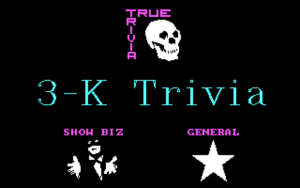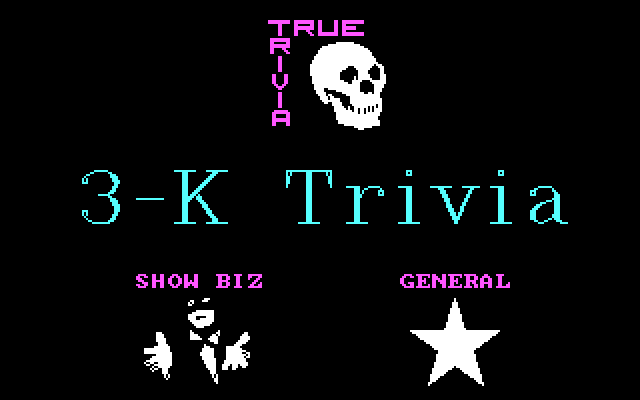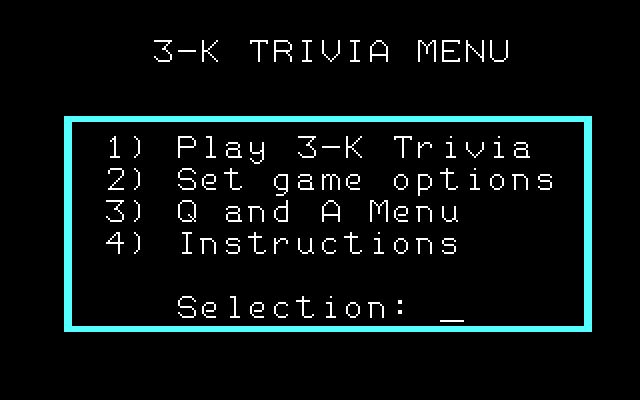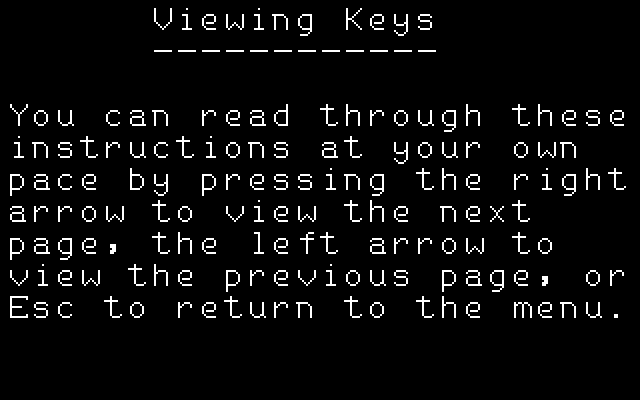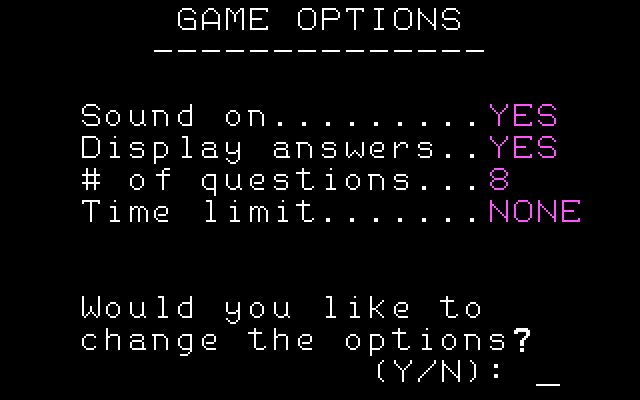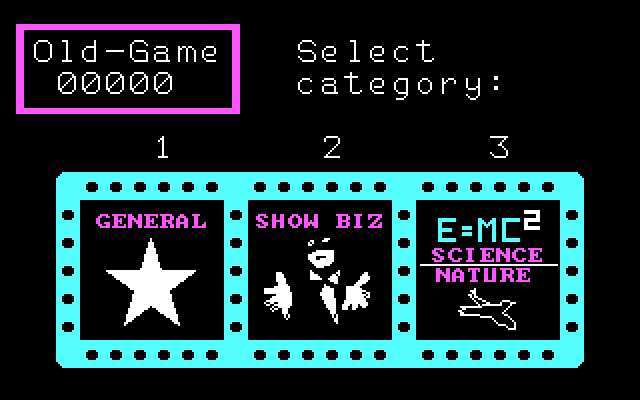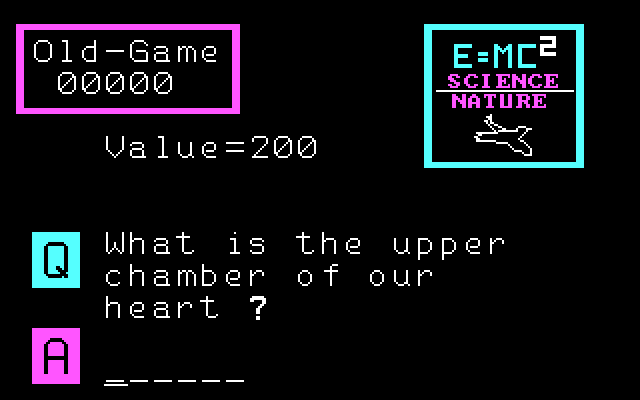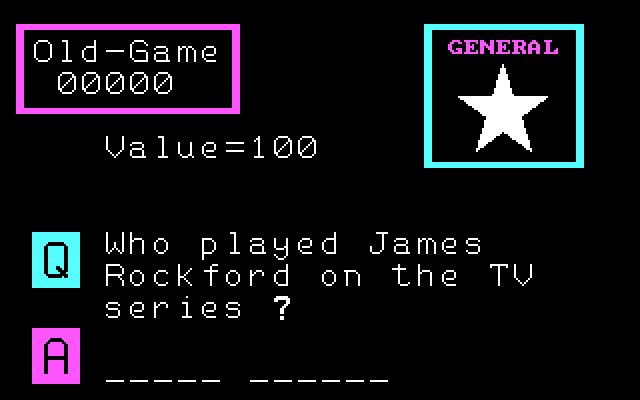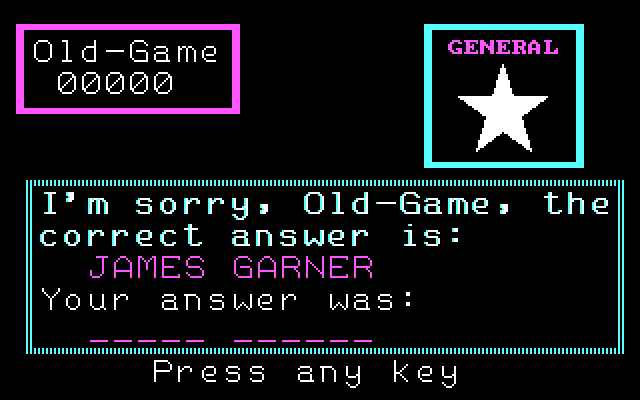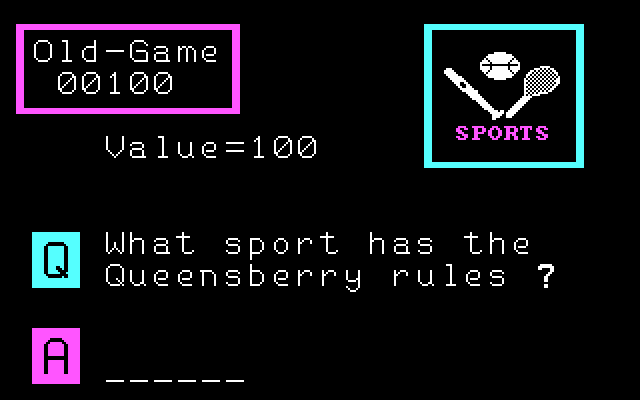3-K Trivia description
One of the first games-quizzes released on IBM PCs (and its well established and published, by the way), one of the most challenging population of post-Soviet space, but on the other hand, is interesting for those who wants to live in the America of the 1980s.
Like other similar games, 3-K Trivia is an imitation of the TV show, the real prototype which did not exist. The number of participants varies from two to six, artificial intelligence is not, and the similar gameplay of its existence does not imply: it is foolish to force the computer to answer their own questions (although some developers are satisfied with that). To demonstrate your knowledge to the people.
At first it is necessary to pull a virtual lever of a slot machine: "one-armed bandit" will give a choice of three headings (there are about a dozen, each of them can add your own), but instead one of them might fall out "Joker", which will narrow the range of choice, however, will double the number of points for a correct answer. Then the player whose turn came, selects one of the fallen and either cope with the question and gets the points or not. Someone out more the final score after several rounds wins.
And now, why 3-K Trivia difficult. The reason for this is, surprisingly, at her age. The answers to many asked questions game since then has changed: scientific progress does not stand still, and the geopolitical situation is not the same, so the real test of knowledge with the game is impossible. And this is not to mention the sections devoted to television and show business USA 1980-ies: we have very few people interested in such themes of the period.
As a result, we have a very rare case: 3-K Trivia is a really outdated game. It can be used as a time machine to feel American sample in 1984 according to IBM. From this point of view of its historical value is very high.
Have you ever wondered what kind of video games were played in the good old days? Try playing 3-K Trivia online now and we are sure you will not stop playing again.
Source: Archive.org
